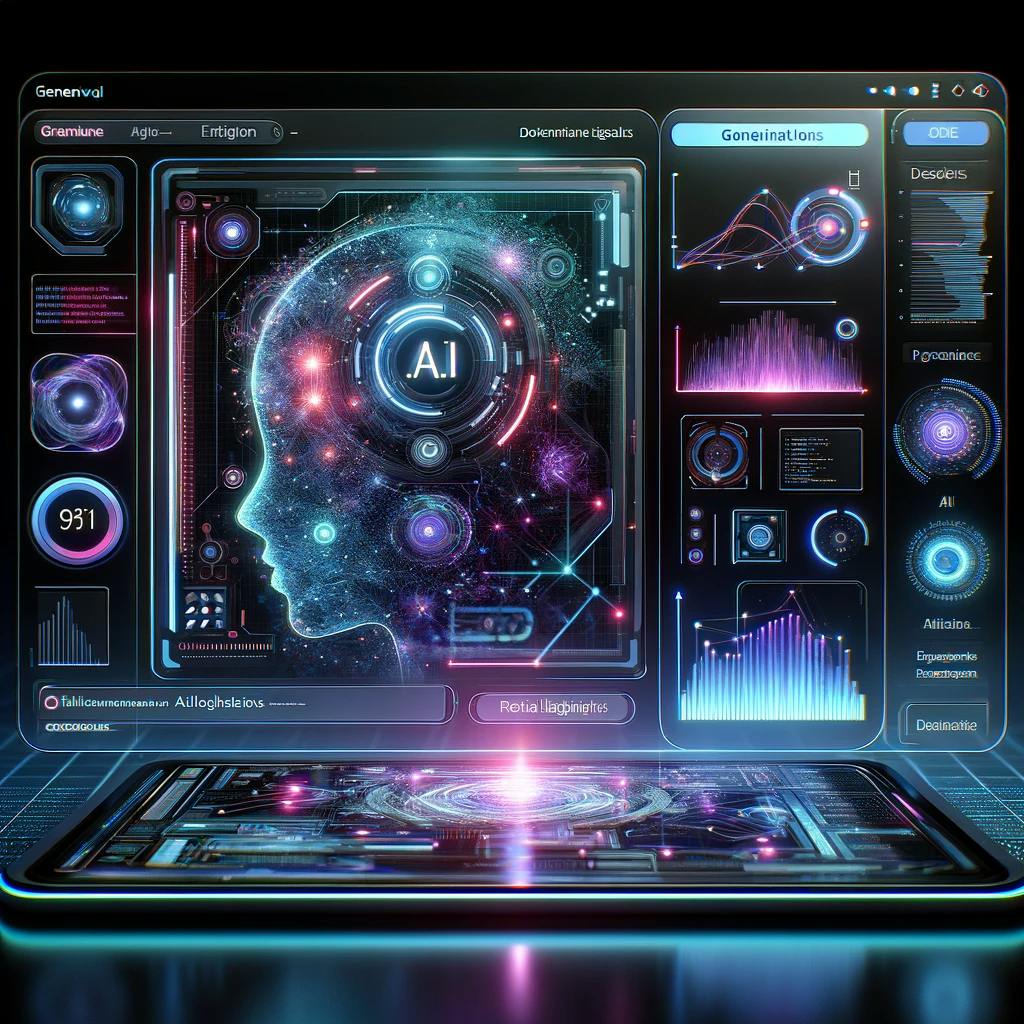Navigating the Landscape: OpenAI's GPT vs Custom-Made GPT Chatbots
1. Introduction
Generative AI has revolutionized digital interactions, providing unparalleled ease and scalability in understanding intent and analyzing data. This transformative shift has particularly impacted customer experiences and business intelligence, with AI-powered chatbots gaining popularity. OpenAI's GPT store has played a significant role in offering a straightforward solution. This blog post delves into the pros and cons of utilizing OpenAI's standard GPT chatbots versus opting for custom-made or private GPTs.
OpenAI's GPT:
OpenAI's GPT is a standout in the world of AI-driven conversations. At its core, GPT is a smart language model that can generate human-like text based on what it learns from big sets of data. With the recent release of GPT-4, OpenAI has set a high standard for natural language understanding.
Custom GPTs:
On the flip side, custom or private GPTs offer a different approach for organizations seeking a tailored conversational AI solution. These personalized models can operate within a company's infrastructure, providing better data security, custom integrations with existing systems, and alignment with specific business processes through strategic prompting.
Custom or private GPT's refer to the custom implementations of ML systems using open-source LLMs deployed in a controlled infrastructure (on-premise or cloud), with potential fine-tuning on task-specific datasets, and full control over custom integrations with external systems.
This blog post aims to explore the strengths and weaknesses of both OpenAI's standard GPTs and custom-made GPTs, shedding light on important factors such as deployment speed, security, integration capabilities, vendor lock concerns, and language model sophistication. As businesses weigh the options between off-the-shelf solutions and customized implementations, a clear understanding of what each offers becomes crucial in navigating the evolving landscape of generative AI chatbots.

2. Pros and Cons
Pros of OpenAI GPTs:
- Speed: Easy configuration and quick deployment.
- State-of-the-Art Language Model (LLM): OpenAI's GPT-4 stands as the most advanced LLM available.
Cons of OpenAI GPTs:
- Infrastructure Dependency: Reliance on OpenAI's infrastructure for running the chatbot.
- Security Concerns: Entrusting data to a third party raises security considerations.
- Limited Integrations: Few ready-made integration possibilities, requiring custom solutions.
- Data Formatting: Lack of automated data structuring; data for ingestion must be formatted.
- Vendor Lock-in: Tied to OpenAI's ecosystem, limiting flexibility and potentially increasing dependency.
Pros of Custom or Private GPTs:
- Infrastructure Control: The GPT can operate within your organization's infrastructure.
- Enhanced Data Security: Improved data protection within a closed infrastructure (on-premise, cloud or hybrid scenarios).
- Tailored Integrations: Custom integrations with existing infrastructure, including CRM and other data sources.
- Process Alignment Through Prompting and Fine Tuning: There are more possibilities to align with company-specific processes by fine tuning in addition to prompt engineering.
Cons of Custom GPTs:
- Advanced LLMs: Not as advanced as OpenAI's GPT-4; may lag in language model capabilities. This is however a closing gap in multiple scenarios, and the landscape of open source models is constantly changing.
- Development Time: Building a custom GPT is a time-intensive 3-4 month project.
3. Conclusion
Choosing between OpenAI's commercial model and a custom-made implementation involves weighing speed, security, integration capabilities, vendor lock concerns, and the sophistication of language models. While OpenAI's GPTs offer quick prototyping & deployment and boast cutting-edge language models such as GPT-4, it's essential to note that Open Source Language Models (LLMs) may be sufficient for various use cases, particularly in applications like customer service chatbots. Custom GPTs provide organizations with control, enhanced security, and tailored integrations. Understanding the specific needs and priorities of your organization is crucial in navigating this evolving landscape of generative AI chatbots.
4. How Nieve Consulting can help?
Navigating the intricate landscape of generative AI chatbots demands careful consideration of unique organizational needs. At Nieve Consulting, we specialize in guiding businesses through this decision-making process and implementing tailored solutions that align with their objectives.
OpenAI GPT Solutions:
For companies opting for OpenAI GPT solutions, our expertise extends to optimizing the configuration process, structuring data for seamless integration, and crafting effective prompts to align the chatbot with specific business processes. Our comprehensive approach ensures that businesses harness the full potential of OpenAI's advanced language models.
Custom GPT Solutions:
In scenarios where a custom GPT is the preferred route, Nieve Consulting takes charge of the entire project lifecycle. From conceptualization to implementation, our team designs bespoke solutions that operate seamlessly within your infrastructure. We specialize in custom integrations, data structuring, and process alignment, ensuring the chatbot serves as a tailored extension of your organizational capabilities.
Choosing the Right Solution:
Our consultancy services don't stop at implementation; we work closely with organizations to identify their unique requirements, assess the advantages and limitations of each approach, and provide insights into which solution aligns best with their business goals. Whether it's OpenAI's GPT or a custom GPT, Nieve Consulting ensures a strategic and informed decision-making process. In essence, we don't just offer solutions; we tailor them to suit your organization's specific needs, making the integration of generative AI chatbots a seamless and impactful journey.
Contact:
Mikaela Nyman, CEO
Nieve Consulting Services SL
mikaela@nieveconsulting.com
+34 610 096 740
+358 50 553 8001

CEO
